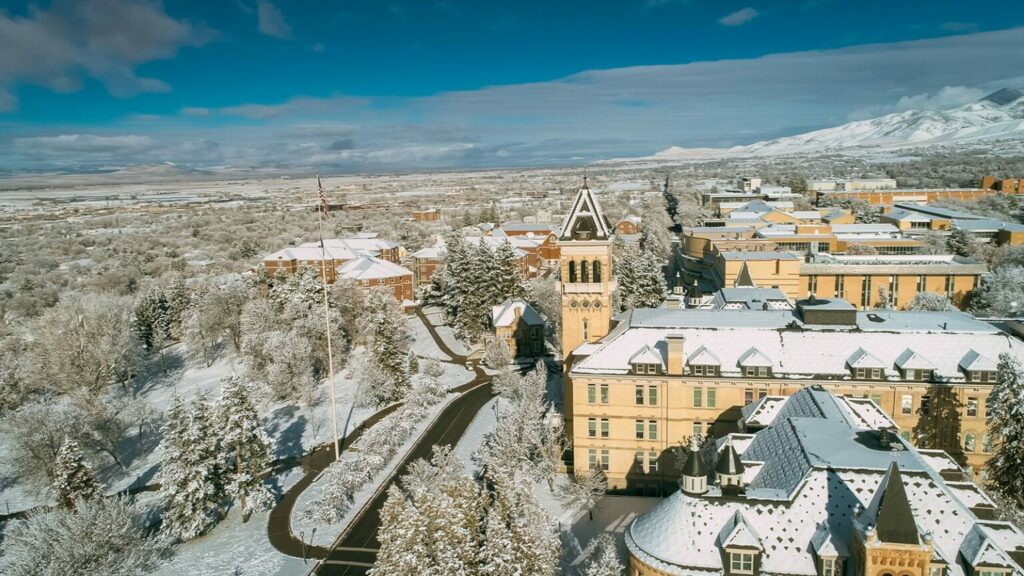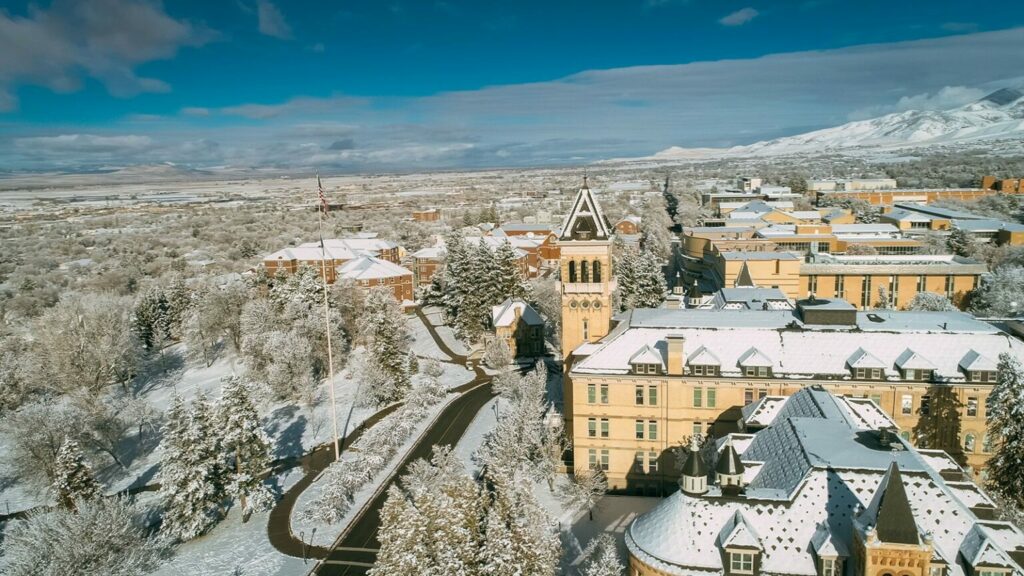USU Board of Trustees releases information from external review of athlete’s concerns over Cockett’s comments


On Dec. 8, 2020, Utah State University President Noelle E. Cockett, Athletic Director John Hartwell and approximately 53 student athletes participated in a Zoom meeting. In the days following the meeting, both the USU Board of Trustees and Utah Board of Higher Education initiated external reviews related to concerns students expressed about the content of the meeting. The law firms of Stoel Rives and Ray Quinney & Nebeker provided their joint report this week.
The Utah Board of Higher Education has supervisory authority over presidents of Utah’s institutions of higher education, including President Cockett. The board expressed its unanimous support for President Cockett and have a statement on their website.
In their joint review, the external investigators wrote:
“We conclude that neither Pres. Cockett nor Hartwell expressly stated that their ‘primary concern’ about Coach Maile was his religious or cultural background, nor that his background would disqualify him as a coaching candidate. Instead, we conclude that the inclusivity concerns raised by Pres. Cockett were designed to promote a discussion with athletes about the degree to which they felt included and welcomed at Utah State. Unfortunately, likely due to some of the complicating factors expressed above, Pres. Cockett’s intent was not effectively communicated to or understood by the athletes, who genuinely felt that Pres. Cockett’s general concerns about inclusivity expressed or implied reservations about Coach Maile.”
The USU Board of Trustees received the external review report this week and board chair Jody Burnett met with the Utah Board of Higher Education this morning, Friday, Jan. 15, to discuss steps to move forward.
“We greatly appreciate the student-athletes’ willingness to participate in this external review,” said Burnett. “We hear them and acknowledge their concerns. Over the spring semester, the university’s leadership and Trustees will continue to address the issues raised by the student-athletes during the review.”
Burnett added, “The Trustees continue to have great faith and confidence in President Cockett’s leadership of Utah State, including her proactive approach to advancing the institution’s diversity and inclusion goals. We recognize we have much to do in addressing diversity and inclusion issues, and we are committed to doing that work, as a board and as a university community.”
Deans of USU’s eight colleges held a unanimous vote of confidence in President Cockett, stating, “We know her to be a person of great humanity—kind, considerate, caring, empathic, inclusive, honest, forthright, and deeply loyal to the values and aspirations of our beloved university.”
President Cockett also voiced a commitment to continuing to promote a culture of belonging in the USU community.
“In my attempt as president of USU to connect with the students around a sensitive topic, I have learned this caused some students discomfort,” said President Cockett. “It was certainly not my intent for this to result in a negative experience, and for that, I sincerely apologize.”
“I look forward to continuing progress on the diversity and inclusion efforts that were outlined before the pandemic set in last spring,” Cockett said. President Cockett has instructed the USU Diversity and Inclusion Task Force to finish a public report for the fall 2019 climate survey within the next few months. The task force will also hold virtual focus groups on inclusion during the spring 2021 semester.
President Cockett also addressed the issue of the national search for a new head coach for the football program, which was conducted by an independent firm in collaboration with USU Athletics. Her role in the search process did not include screening applicants.
“Utah State Athletics is dedicated to fostering a safe, welcoming and inclusive environment free of any inequalities for all of our student-athletes, coaches and staff,” said John Hartwell, vice president and director of Athletics. “The well-being of our student-athletes is our top priority. We are committed to giving our student-athletes opportunities to express themselves so we can continue to have open dialogue and find ways to better their experience, our community and Utah State University.”
Hartwell added that USU student-athletes are encouraged to share their concerns with USU Athletics, and can do so anonymously through Real Response, an online reporting form.
USU Athletics created a Diversity and Inclusion Council in summer 2020. The current university administration also funded the creation of a new history class that launched in fall 2020 and explores the “Untold Truths of African Inequality in the United States” after student-athletes at USU identified the idea as a way to educate and “be a part of positive change.”
Diversity and Inclusion Efforts at USU
Over the last four years, President Cockett has prioritized diversity and inclusion and led USU in efforts to create the Latinx Cultural Center; develop the annual Inclusive Excellence Symposium; expand staffing, funds and gathering space for the USU Inclusion Center; create the Center for Intersectional Gender Studies and Research; provide additional space and resources to the Veterans Resource Center; double the staffing of the Office of Equity, facilitate a new community-campus partnership in the annual Community Diversity Dinner; and expand the impact of the Aggies Think Care Act Initiative.
President Cockett created the Diversity and Inclusion Task Force in spring 2019 to guide the university’s efforts to foster a diverse and inclusive university system. The task force includes faculty and staff across USU campuses, with several working groups examining student recruitment and success; employee hiring, retention and success; training, research and instruction; and the acknowledgement of Native lands.
In 2014 the university created the USU Interfaith Initiative in an effort to counter the impacts of religious bias and provide greater connectedness on campus. This initiative has since evolved into an academic interfaith leadership certificate program that combines classroom-based learning and community-based application of the vision, knowledge and skills needed to navigate a religiously diverse world.
USU provides multiples resources for getting involved in inclusion efforts and for reporting and seeking help for incidents of bias, including reporting illegal discrimination to the Office of Equity.




